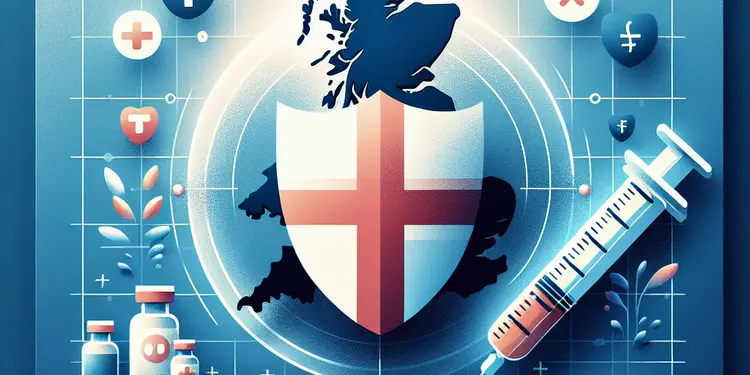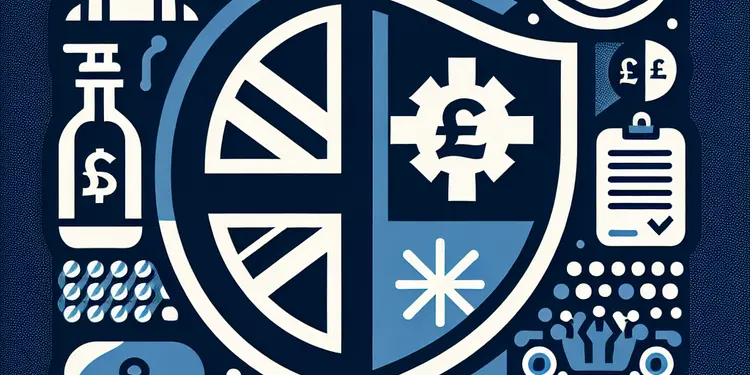
Find Help
More Items From Ergsy search
-
New Covid Variant Strains
Relevance: 100%
-

Are new variants more transmissible?
Relevance: 100%
-

Should I be worried about new variants?
Relevance: 96%
-

Can new variants cause reinfection?
Relevance: 96%
-

Are children more affected by new variants of COVID?
Relevance: 92%
-

Do all mutations in the virus lead to new variants?
Relevance: 92%
-

Are new COVID-19 variants more dangerous?
Relevance: 91%
-
Do new variants affect COVID-19 testing?
Relevance: 91%
-
How often do new COVID-19 variants emerge?
Relevance: 89%
-

Do vaccines work against new COVID-19 variants?
Relevance: 88%
-
What is the process to identify a new Covid-19 variant?
Relevance: 88%
-

How do scientists name new Covid-19 variants?
Relevance: 87%
-

Is there concern about new hypothetical variants like Nimbus and Stratus?
Relevance: 86%
-

How can I protect myself from new COVID-19 variants?
Relevance: 81%
-

Are there protocols for handling hypothetical variants?
Relevance: 74%
-
What is a COVID-19 variant?
Relevance: 73%
-

Has research been conducted on the Nimbus variant?
Relevance: 71%
-

Do vaccines protect against the Stratus variant?
Relevance: 71%
-

What are the Nimbus and Stratus variants of Covid?
Relevance: 71%
-
What is the Covid-19 Stratus variant?
Relevance: 71%
-
How are COVID-19 variants detected?
Relevance: 68%
-

Is the Nimbus variant more contagious?
Relevance: 67%
-

Is the COVID jab effective against new variants?
Relevance: 67%
-
How do COVID-19 variants arise?
Relevance: 67%
-

Why do some variants spread more easily?
Relevance: 66%
-

What would happen if the Nimbus variant existed?
Relevance: 64%
-

What impact could a variant like Stratus have if real?
Relevance: 63%
-

Can hypothesized variants be used in scientific modeling?
Relevance: 63%
-
Where can I learn about real Covid-19 variants?
Relevance: 63%
-

Have there been fictional variants used in media discussions before?
Relevance: 60%
-

Are the Nimbus and Stratus variants officially recognized?
Relevance: 60%
-

How can I protect myself from Covid-19 variants?
Relevance: 60%
-
Are the symptoms different with new COVID-19 variants?
Relevance: 45%
-

What role do booster shots play with new variants?
Relevance: 42%
-

Is Super Flu a new strain of virus?
Relevance: 40%
-
Can current treatments handle new COVID-19 variants?
Relevance: 39%
-

Will I qualify for the new state pension?
Relevance: 37%
-

Are there new guidelines for property maintenance?
Relevance: 36%
-

The new death certification process in the UK
Relevance: 35%
-

What happens if I move to a new postcode?
Relevance: 35%
Understanding New Variants
As the COVID-19 pandemic evolves, new variants of the virus have emerged. These variants are versions of the virus that have undergone mutations. While the existence of new variants is not surprising, it raises questions about their impact on public health and safety.
Should You Be Concerned?
In the United Kingdom, being informed about new COVID-19 variants is crucial. While not every variant will have significant impacts, some may affect transmission rates, vaccine effectiveness, and severity of symptoms. The government and health organisations, such as the NHS, actively monitor these changes to guide public health decisions.
Impact of Variants on Transmission
Variants can potentially be more transmissible than previous strains. For example, past variants of concern, like Alpha and Delta, showed higher transmission rates compared to the original virus. Increased transmissibility means that these variants can spread more easily, leading to higher case numbers.
Vaccine Effectiveness
Vaccines continue to be a key defense against COVID-19, but new variants can sometimes influence their effectiveness. For instance, some variants may partially evade the immune response generated by vaccines. However, vaccines still provide substantial protection against severe illness and death.
Monitoring and Adapting
Health authorities in the UK take variant surveillance seriously. This involves genomic sequencing to detect and track new variants. The government can then make informed decisions, such as adjusting public health measures or deploying booster vaccination campaigns, to protect the population.
Personal Protective Measures
Even with the presence of new variants, the basic protective measures remain effective. Wearing masks, maintaining social distance, and practising good hygiene continue to be important. Vaccination also remains a crucial tool in reducing the impact of these variants.
Staying Informed
Keeping up to date with reliable information from trusted sources like the NHS and Public Health England will help you understand the current situation regarding new variants. Misinformation can be prevalent, so it's vital to rely on scientifically backed data.
Conclusion
While new variants are a natural part of virus evolution, it's essential not to panic but to stay informed and prepared. The UK health system is equipped to handle these challenges, and by following expert guidance, we can mitigate the risks associated with new COVID-19 variants. Staying vigilant and proactive about your health can make a significant difference.
Understanding New Variants
As COVID-19 spreads, new versions of the virus, called variants, appear. These variants have small changes in them. It's normal for the virus to change, but it's important to understand how these changes might affect our health and safety.
Should You Be Concerned?
It’s important to know about new COVID-19 variants, especially in the UK. Not all variants are dangerous, but some can change how the virus spreads, how well vaccines work, or make people sicker. Experts like the NHS watch these changes to help keep us safe.
Impact of Variants on Transmission
Some new variants spread more easily than others. For example, Alpha and Delta spread faster than the first virus version. If a variant spreads faster, more people can get sick quickly.
Vaccine Effectiveness
Vaccines are very important for fighting COVID-19. Sometimes new variants can make the vaccine less strong, but vaccines still help a lot in stopping severe sickness and death.
Monitoring and Adapting
In the UK, experts look closely at new variants. They study the virus to find and understand new variants. This helps the government make good choices, like changing health rules or giving extra vaccine shots.
Personal Protective Measures
Even with new variants, simple actions help keep us safe. Wearing masks, keeping distance from others, washing hands, and getting vaccinated are all important.
Staying Informed
Stay up to date with real information from trusted places like the NHS. Be careful of false information and rely on facts tested by scientists.
Conclusion
New variants are normal as viruses change. Don’t be scared, just stay informed and ready. The UK health system is prepared to manage these changes. By following expert advice, we can stay safe from new COVID-19 variants. Taking care of your health is very important.
Frequently Asked Questions
What are virus variants?
Virus variants are versions of a virus that have undergone genetic mutations.
How do new variants arise?
New variants arise through mutations that occur as the virus replicates.
Should I be concerned about new virus variants?
Potentially, as some variants can spread more easily, cause more severe disease, or evade immunity.
Do vaccines work against new variants?
Most vaccines still provide protection against severe disease caused by new variants, though their effectiveness may be reduced.
How can I protect myself from new variants?
Continue following public health guidelines, such as wearing masks, social distancing, and getting vaccinated.
Are new variants more dangerous?
Some new variants can be more transmissible or lead to more severe illness, but not all.
How do scientists identify new variants?
Through genomic sequencing of the virus from patient samples.
Can new variants lead to another pandemic?
It's unlikely that a single variant would cause a new pandemic, but they can exacerbate the current situation.
Will travel restrictions help prevent the spread of new variants?
Travel restrictions can help slow the spread but might not completely prevent it.
How quickly do new variants spread?
The spread depends on the variant's transmissibility and the population's immunity.
Are there treatments for infections with new variants?
Existing treatments may still be effective, but research is ongoing to ensure efficacy against new variants.
What is being done to monitor new variants?
Global surveillance and genomic sequencing are used to track new variants.
Can new variants evade tests?
Most tests can still detect new variants, though some may have reduced sensitivity.
Can I get reinfected with a new variant?
Yes, reinfection is possible, especially if the variant can partially evade immunity.
What is the difference between a variant and a strain?
A strain is a variant that shows distinct properties, such as differences in transmissibility or virulence.
Are some countries more at risk from new variants?
Countries with lower vaccination rates and limited healthcare resources might be more vulnerable.
Do masks protect against new variants?
Yes, masks can still reduce the risk of transmission, regardless of the variant.
Why do some variants spread more easily?
Mutations can enhance the virus's ability to bind to human cells or replicate faster.
Will I need a booster shot for new variants?
Booster shots may be recommended to maintain protection against emerging variants.
How can the public contribute to controlling new variants?
Following health guidelines, getting vaccinated, and supporting public health measures are crucial.
What are virus variants?
A virus variant is when a virus changes or mutates. This happens when the virus makes copies of itself.
Think of it like this: If you draw a picture many times, some copies might look different. The virus works in a similar way.
Changes in the virus can make it act differently. This can affect how it spreads or how we fight it.
Helpful tip: You can use pictures or videos to learn more about viruses and how they change. Talking with a teacher or a parent can also help you understand better.
Virus variants are different types of a virus. They change because they have small changes in their genes.
How do new types of viruses appear?
Viruses can change and become a little different over time. This makes new types of the virus that we call "variants".
Here's how it happens:
- Viruses copy themselves to spread.
- Sometimes, mistakes happen when they copy.
- These mistakes can make new variants.
If you want to understand better or need help reading, you can:
- Ask an adult to explain it.
- Use pictures or videos to learn more.
- Look for apps or tools that read out loud to you.
New virus types appear when the virus changes as it makes copies of itself.
Should I worry about new virus types?
It is normal to worry about new virus types. Scientists are watching these virus types carefully. They help keep us safe.
If you feel scared, talk to someone you trust. They can help answer your questions.
Try using pictures or videos to learn more. This can make things easier to understand.
Some types of the virus can spread faster, make people more sick, or make it harder for our bodies to fight back.
Do vaccines work on new types of the virus?
Vaccines are like a shield. They help protect you from getting sick.
Sometimes the virus changes. These changes are called "new types" or "variants."
Scientists check if vaccines still protect against these new types.
Most of the time, vaccines still help keep you safe.
If you have questions, ask a doctor or a nurse. They can help you understand.
Using pictures or videos might make it easier to learn about vaccines.
Most vaccines still help protect us from getting very sick, even with new types of the virus. But they might not work as well as before.
How can I stay safe from new kinds of the virus?
Here are some simple steps to help you stay safe:
- Wash your hands often with soap and water.
- Wear a face mask in crowded places.
- Stay a safe distance from other people.
- Try to spend time outdoors or in places with fresh air.
- If you can, get the vaccine to help protect yourself.
- Keep up with news from trusted sources to know what to do.
These steps can help keep you healthy.
Keep doing what doctors say to stay safe. Wear masks, stay apart from others, and get your vaccines.
Are new kinds of the virus more dangerous?
Sometimes, germs like viruses change into new kinds. These are called "variants".
People want to know if the new kinds are worse for us.
This can be a scary topic, but talking about it helps us stay safe. Here are some tips:
- Ask a grown-up if you have questions.
- Look at pictures or watch simple videos about it.
- Use a dictionary to understand new words.
Some new versions of the virus can spread more easily or make people sicker, but not always.
How do scientists find new virus types?
Doctors look at tiny parts of the virus from people who are sick to understand it better.
Can new kinds of a virus start a new worldwide sickness?
Germs like viruses can change and become new kinds. These new kinds are called variants. When a new variant comes, it can sometimes make more people sick. This is like what happened with COVID-19.
Doctors and scientists watch new variants carefully. They want to see if they make people very sick or spread fast.
We can do things to stay safe, like washing our hands and getting vaccines.
People can use help like speaking out loud, making notes, or asking others if they need help understanding.
It's not likely that one new change in a virus would cause a new pandemic, but it can make things worse now.
Do travel rules stop new germs from spreading?
Travel rules can help slow down the spread of germs, but they might not stop it completely.
How fast do new types of viruses spread?
New virus types can spread fast or slow.
They move from person to person.
It is like when you pass a ball to a friend.
Tools to help you:
- Use pictures to understand better.
- Ask someone if you have questions.
The way the virus spreads depends on two things. First, how easily the virus can move from one person to another. Second, how many people are protected because they had the virus before or got a shot to stop them from getting sick.
Can new virus infections be treated?
Current treatments can still work. But scientists are studying to make sure they work well on new versions of the virus.
How do we watch new changes in the virus?
Scientists watch the virus closely using special methods. They want to find new changes in the virus quickly.
Do new virus variants escape tests?
Some new virus versions can be tricky to detect with old tests.
Simple words can help you understand better.
Speaking with a doctor or nurse is a good idea.
Most tests can still find new versions of the virus, but some tests might not be as good at it.
Can I catch a new type of the virus again?
Yes, you can get the virus again, especially if the new virus type can get past your body's defenses.
If you find reading hard, you can try using:
- Reading apps that make words bigger.
- Text-to-speech tools that read the words to you.
- Pictures or videos to help explain the words.
How is a variant different from a strain?
A variant is a type of virus that changes a little bit. It's like having a new version of a toy you know.
A strain is when the changes in the virus are bigger, making it act or look different. It's like turning a toy into something new altogether.
To understand better, you can:
- Use pictures to show how things change.
- Watch videos that explain how viruses change.
- Ask someone to explain it with simple words.
A strain is a type or version of something. It can act differently, like spreading more easily or being stronger.
Do new virus changes affect some countries more?
Countries with fewer people getting vaccines and not much health help might be at greater risk.
Do masks keep us safe from new types of the virus?
Masks can help stop us from getting sick. They cover our nose and mouth. This stops bad germs from coming in. Masks work for different kinds of the virus, even new ones.
It's a good idea to wear a mask when lots of people are around. Wash your hands often too. This helps keep everyone safe.
If you need help remembering, ask a friend or use reminders on your phone.
Yes, wearing a mask can help stop the spread of germs, even if the germs change.
Why do some types of germs spread more easily?
Mutations are changes. They can help a virus stick better to human cells or make more copies of itself faster.
Will I need another shot for new versions of the virus?
New versions of a virus are called variants. Sometimes, these variants are a little different from the original virus.
A booster shot is an extra dose of medicine that helps keep you protected.
If there are new variants, doctors might say we need another shot to stay safe.
Ask a doctor if you are unsure.
If you find reading hard, ask someone you trust to help explain.
You can also use tools that read the text out loud to you.
Booster shots might be needed to keep us safe from new kinds of the virus.
How can everyone help stop new sicknesses from spreading?
Everyone can do easy things to help stop sicknesses:
- Wash your hands often with soap and water.
- Wear a mask in busy places.
- Stay away from others if you feel sick.
- Get a vaccine when you can.
- Keep your distance from others in crowded places.
If it's hard to remember, ask someone you trust for reminders or write notes to help you.
It is really important to follow health rules, get your shots, and help with rules that keep everyone healthy.
Useful Links
This website offers general information and is not a substitute for professional advice.
Always seek guidance from qualified professionals.
If you have any medical concerns or need urgent help, contact a healthcare professional or emergency services immediately.
Some of this content was generated with AI assistance. We’ve done our best to keep it accurate, helpful, and human-friendly.
- Ergsy carfully checks the information in the videos we provide here.
- Videos shown by Youtube after a video has completed, have NOT been reviewed by ERGSY.
- To view, click the arrow in centre of video.
- Most of the videos you find here will have subtitles and/or closed captions available.
- You may need to turn these on, and choose your preferred language.
- Go to the video you'd like to watch.
- If closed captions (CC) are available, settings will be visible on the bottom right of the video player.
- To turn on Captions, click settings .
- To turn off Captions, click settings again.
More Items From Ergsy search
-
New Covid Variant Strains
Relevance: 100%
-

Are new variants more transmissible?
Relevance: 100%
-

Should I be worried about new variants?
Relevance: 96%
-

Can new variants cause reinfection?
Relevance: 96%
-

Are children more affected by new variants of COVID?
Relevance: 92%
-

Do all mutations in the virus lead to new variants?
Relevance: 92%
-

Are new COVID-19 variants more dangerous?
Relevance: 91%
-
Do new variants affect COVID-19 testing?
Relevance: 91%
-
How often do new COVID-19 variants emerge?
Relevance: 89%
-

Do vaccines work against new COVID-19 variants?
Relevance: 88%
-
What is the process to identify a new Covid-19 variant?
Relevance: 88%
-

How do scientists name new Covid-19 variants?
Relevance: 87%
-

Is there concern about new hypothetical variants like Nimbus and Stratus?
Relevance: 86%
-

How can I protect myself from new COVID-19 variants?
Relevance: 81%
-

Are there protocols for handling hypothetical variants?
Relevance: 74%
-
What is a COVID-19 variant?
Relevance: 73%
-

Has research been conducted on the Nimbus variant?
Relevance: 71%
-

Do vaccines protect against the Stratus variant?
Relevance: 71%
-

What are the Nimbus and Stratus variants of Covid?
Relevance: 71%
-
What is the Covid-19 Stratus variant?
Relevance: 71%
-
How are COVID-19 variants detected?
Relevance: 68%
-

Is the Nimbus variant more contagious?
Relevance: 67%
-

Is the COVID jab effective against new variants?
Relevance: 67%
-
How do COVID-19 variants arise?
Relevance: 67%
-

Why do some variants spread more easily?
Relevance: 66%
-

What would happen if the Nimbus variant existed?
Relevance: 64%
-

What impact could a variant like Stratus have if real?
Relevance: 63%
-

Can hypothesized variants be used in scientific modeling?
Relevance: 63%
-
Where can I learn about real Covid-19 variants?
Relevance: 63%
-

Have there been fictional variants used in media discussions before?
Relevance: 60%
-

Are the Nimbus and Stratus variants officially recognized?
Relevance: 60%
-

How can I protect myself from Covid-19 variants?
Relevance: 60%
-
Are the symptoms different with new COVID-19 variants?
Relevance: 45%
-

What role do booster shots play with new variants?
Relevance: 42%
-

Is Super Flu a new strain of virus?
Relevance: 40%
-
Can current treatments handle new COVID-19 variants?
Relevance: 39%
-

Will I qualify for the new state pension?
Relevance: 37%
-

Are there new guidelines for property maintenance?
Relevance: 36%
-

The new death certification process in the UK
Relevance: 35%
-

What happens if I move to a new postcode?
Relevance: 35%


